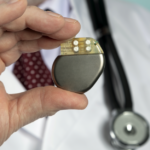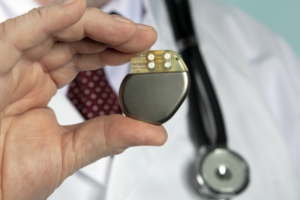 The temperatures are dropping fast. With the sudden change in weather, our bodies sometimes don’t fully adjust right away. This can put a dent in our immunity and leave us exposed to potential cold and flu viruses going around.
The temperatures are dropping fast. With the sudden change in weather, our bodies sometimes don’t fully adjust right away. This can put a dent in our immunity and leave us exposed to potential cold and flu viruses going around.
While there is still no cure for the common cold or the flu, millions of Americans seek relief through over the counter medicines which can help shorten the duration of the illness as well as mask symptoms and help you cope with the bugs and feel a little better temporarily allowing you to get through your days.
These medicines work very well for most people. If you happen to have problems with your heart health though you need to be aware of potential complications and side effects even over the counter remedies may provoke.
If you have been diagnosed with hypertension (High blood pressure), heart disease, or heart failure, common decongestants that contain pseudoephedrine and phenylephrine can be a danger. They are both vasoconstrictors, meaning they constrict blood vessels in the sinus and nasal passages which helps with drainage and swelling – making it easier for you to breathe. The problem is because they are taken orally the effects don’t just take place in the sinuses and nose. They can make your heart work harder than it needs to and that can spell trouble for some.
Safer Alternatives that Still Work
Nasal Decongestant Sprays – This helps minimize the cardiovascular effect because of the direct delivery system. Please use no more than twice daily and only as directed.
Neti Pot – A neti pot is a small plastic pot that holds (non-tap) water, lukewarm, mixed with salt (the salts come with the pots in small pre-measured packages). Mix and rinse one side of the nose at a time. They are great for clearing out dust, pollen, dander, air pollutants, viruses, bacteria and more from your sinus cavities and have no side effects. They are free to be used with any medications.
Hot compress – holding a heating pad or hot compress against your face not only feels good, but it also helps loosen and release sinus pain and pressure allowing the mucus to drain more easily.
Antihistamines – these may be a safe alternative. Antihistamines can help dry up nasal mucosa. Just be aware they may cause drowsiness.
Steam – Be it a wet sauna, a hot shower, or a bowl of boiled water with a towel, the fact is steam loosens up sinuses and helps them to drain. All of these are great helpers.
When choosing a product, always read the label carefully.
- Look at both the “active” and “inactive” ingredients. Many contain multiple active ingredients that could affect your cardiovascular health, interact with your cardiovascular medications, and cause side effects.
- Decongestants and antihistamines come in extended-release meaning that you take them less frequently. Always read the directions on the label and consult your pharmacist or doctor with any questions.
For more heart-healthy advice visit WWW.TAMPACARDIO.COM OR CALL US FOR AN APPOINTMENT AT 813-975-2800.


 A pacemaker can save your life, but it is also sure to alter it as well.
A pacemaker can save your life, but it is also sure to alter it as well.